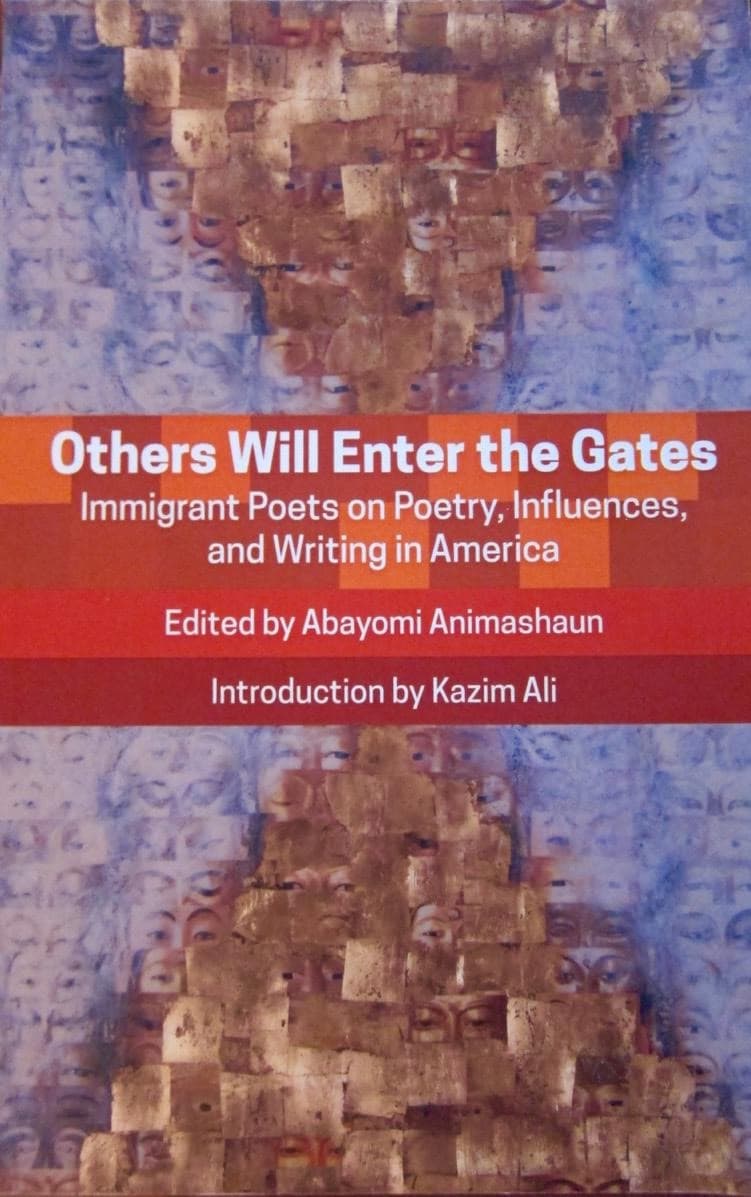Migrant
To be a poet is to hurt—I came, I saw, I hurt.
We stand, we vouch, we lie—
the truth we want is not—
tis a dream we have of life we knew
in a world we lost.
The cross we bear, we brought—
America was brave and bold
and here for us who ventured forth
with ills to tell.
Love’s conditions, we knew;
methods of war, we learnt;
the clothes we wear, we choose anew.
Foreignness is a daily undressing and repairing.
I am traveling through, not meant to stay.
My poetry is but a lie if only crafted words
about a world I failed to join and laud.
America is not at fault, if fault we seek.
The culprit is my heart—inflexible yet soft,
hushed yet shrill, intolerant yet raw.
My skin is a hide, a window,
an affliction not unique.
Other children lived inside themselves,
safely by the fire in mussed sleep,
while I went outside into new snow
at dawn to see the field, dressed
as a poet, before breakfast.
Ah… the brightness of the sun!
Ah… the pull of the wind in tall firs!
And the crunchy shush of snow
under my traveler’s foot!
There then, I felt I exist,
and it is dear.
But how can this be,
when the only resonance underfoot
I once cherished was the sound of sand
on the beach of the island where I grew?
I turned to watch and linger
over my old footsteps; but why?
A mouse, dark brown and cold,
ran out of one as if from a gulf
it just escaped.
He ran over the top of the snow,
exposed, belly scraping the ice,
persisting onward, yet only to fall
into another footstep ahead.
I hope he got to where he was going,
this modern mouse watched over
by a lone, modern Orpheus,
a poet turning to see
the cherished face she missed,
and hurt, old steps recalled! Ah…
truly this country we crowd
is not the fiend, is not the death—
the poet’s foe is but regret.
And God watched me repent,
as He knew I would. Saint
Francis now stands outside,
birds pecking seeds at his stone feet.
Death has undone the chains
once clasped to my ancestors’ limbs.
Nowadays, they lean free on clouds
to spy what gestures I may draw,
what steps I carve on trails I pick.
Cats and creatures left in my care
have calmed the fear I feel—
if they, so small, find love and help
in one so vain as me,
then I for sure would be seized
by One manifold my size and worth,
and though my face in His own likeness may be.
God my heaven!
God my aim!
God my help!
A poet is your bard, or is nothing.
America is not the world.
The world is not my land.
My land is not of this earth.
This earth is not my home.
I care not for the noise, the concrete, cars,
the grim towers of rock and glass
that reflect others likewise grey,
built to intimidate, but not house.
I care not for the hustle, greed, and frauds
of people growing in crowds wanting
to vociferate, trample, defile,
beings made puppets of fashion
to serve the politics of the day.
To be a poet is to charm.
To be a poet is to console.
To be a poet is to silence.
Sounds I listen for are those
that tear, linger, and haunt.
Resonance worth converting is
that which enchants, dispels, and restores.
As translator of echoes in the universe,
the poet is a vibrating instrument,
inherently unstable and crude.
True poets kneel beside an ant
bearing a load beyond its measure,
are humbled each Spring by grace
in an ungainly possum’s purpose and gait,
and moved to see how goldfish
surface throughout each day,
to repeatedly grasp for the small second
of time during which they may catch a portion
of the breath afforded by a world
outside their natural element,
one to them infinitely vast,
but to which they are instinctually drawn,
for they know it to be essential and true.
Published by Black Lawrence Press; Others Will Enter the Gates; Anthology 2015
(Previous title, “An Emigré Poet in America”)

